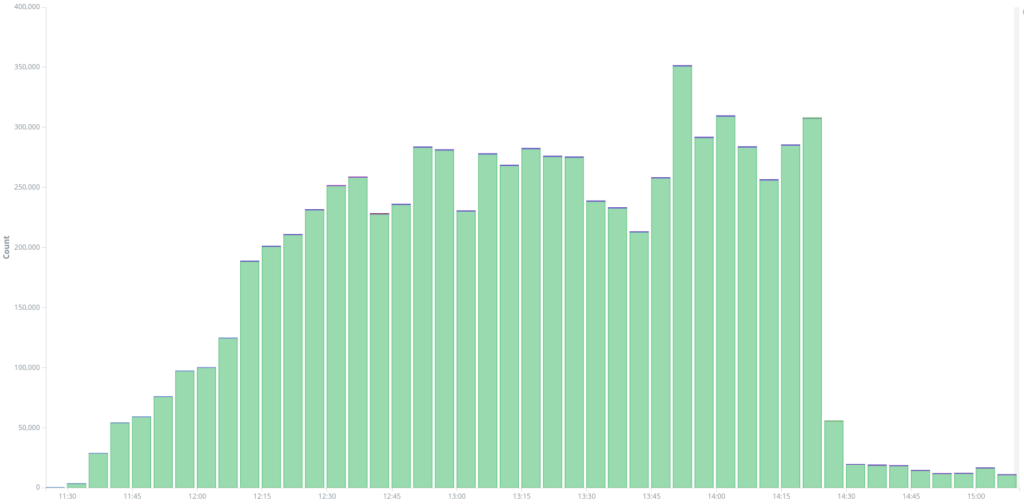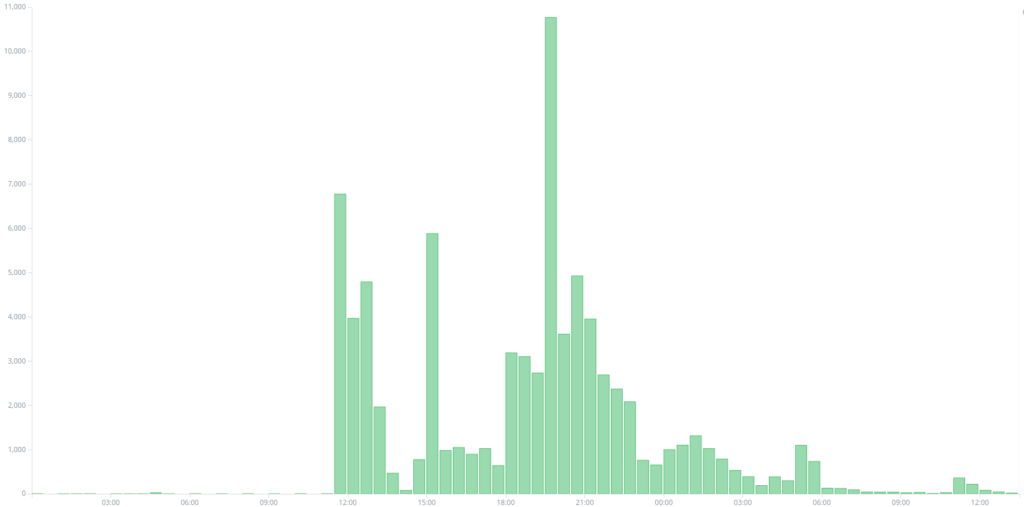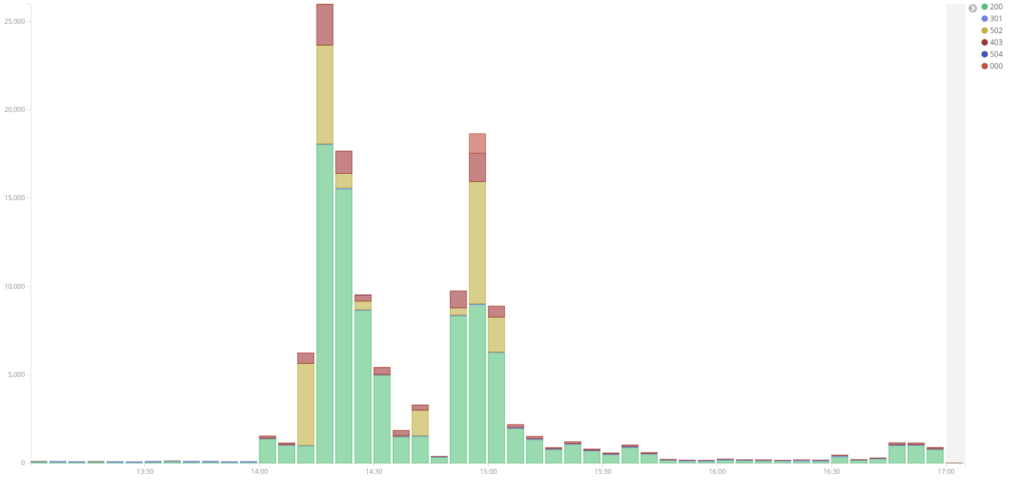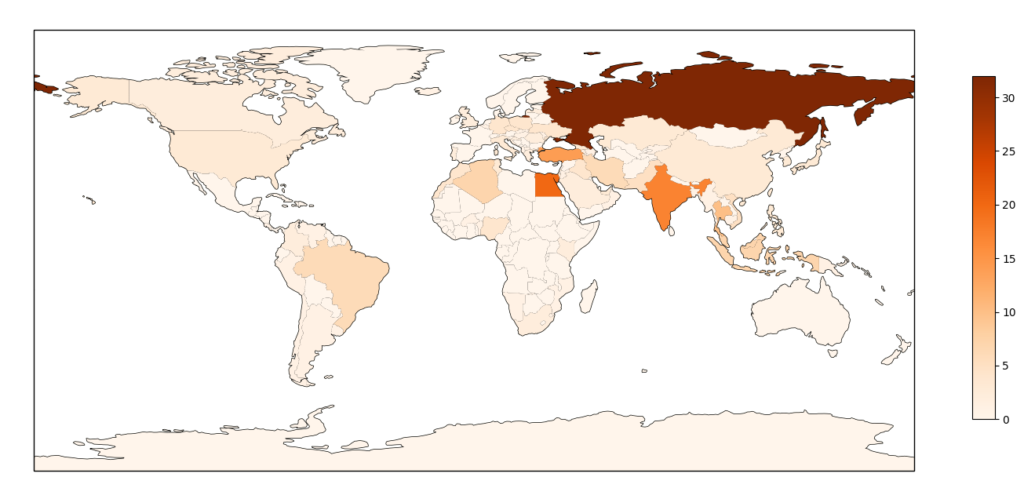Key Findings
- In November and December 2018, we identified 3 DDoS attacks against independent media website Кавказский Узел (Caucasian Knot)
- The first attack was by far the largest DDoS attack seen by the Deflect project in 2018, clocking over 7.7 million queries in 4 hours
- The three attacks used different types of relays, including open proxies, botnets and WordPress pingbacks. We could not find any technical intersection between the incidents to point to their orchestration or provenance.
Context
Caucasian Knot is an online media covering the Caucasus, comprised of 20 regions from the North and South Caucasus. The publication has eleven thematic areas with a focus on human right issues. Several reporters paid the ultimate price for their journalism, including Akhmednabi Akhmednabiev, killed in Dagestan in 2013. Another young Chechen journalist Zhalaudi Geriev, was kidnapped and tortured in 2016, and is now in Chernokozovo prison. On several occasions, Chechen government officials have publicly called for violence against Caucasian Knot reports and editors.
Caucasian Knot has received several journalism awards, including the The Free Press of Eastern Europe award in 2007 and the Sakharov prize in 2017.
First attack : millions of requests from open proxies on October 19th
The Caucasian Knot website joined Deflect on the 19th of October, under the barrel of a massive DDoS attack that had knocked their servers offline. Deflect logged over 7, 700, 000 queries to / on www.kavkaz-uzel.eu between 11h am and 3pm. This was by far the largest DDoS attack we have seen on Deflect in 2018.
The attack was coming from 351 different IP addresses doing requests to /, adding random HTTP queries to bypass any caching mechanism, with queries like GET /?tone=hot or GET /?act=ring, and often adding random referrers like http://www.google.com/translate?u=trade or http://www.comicgeekspeak.com/proxy.php?url=hot. Most of these IP addresses were open proxies used as relays, like the IP 94.16.116.191 which did more than 112 000 queries – listed as an open proxy on different proxy databases.
Many open-proxies are “transparent”, which mean that they do not add or remove any header, but it is common to have proxies adding a header X-Forwarded-for with the origin IP address. Among the long list of proxies used, several of them actually added this header which revealed the IP addresses at the origin of the attack (an occurrence similar to what we’ve previously documented in Deflect Report #4)
- 157.52.132.202 1,157,759
- 157.52.132.196 1,127,194
- 157.52.132.191 1,018,789
- 157.52.132.190 1,008,426
- 157.52.132.197 984,914
These IPs are servers hosted by a provider called Global Frag, that propose servers with DDoS protection (sic!). We have sent an abuse request to this provider on the 19th of November and the servers were shutdown a few weeks after that (we cannot be sure if it was related to our abuse request). We have not recorded any other malicious traffic from these servers to the Deflect network.
Second attack: botnet attack on November 18th
On this day we identified a second, smaller attack targeting the same website.
The attack queried the / path more than 2 million times, this time without any query string to avoid caching, but the source of the attack is really different. Most of the attacks are coming from a botnet, with 1591positively identified IP addresses (top 10 countries listed here):
- 213 India
- 163 Indonesia
- 99 Brazil
- 63 Egypt
- 63 Morocco
- 59 Romania
- 58 Philippines
- 57 United States
- 46 Poland
- 44 Vietnam
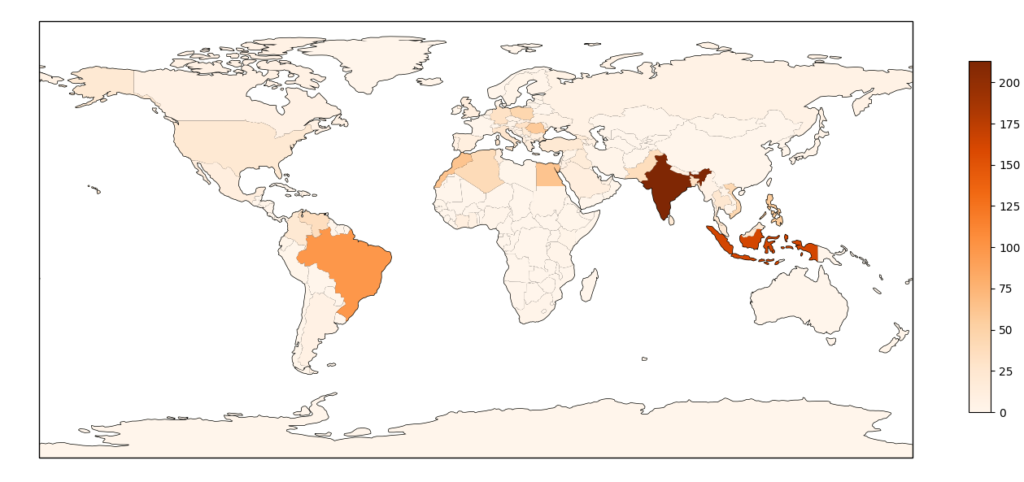 A small subset of this attack was actually using the WordPress pingback method, generating around 30 000 requests. WordPress pingback attacks are DDoS attacks using WordPress websites with the pingback feature enabled as relay, which allows to generate traffic to the targeted website. A couple of years ago, the WordPress development team updated the user-agent used for pingback to include the IP address of the origin server. In our logs we see two different types of user-agents for the pingback :
A small subset of this attack was actually using the WordPress pingback method, generating around 30 000 requests. WordPress pingback attacks are DDoS attacks using WordPress websites with the pingback feature enabled as relay, which allows to generate traffic to the targeted website. A couple of years ago, the WordPress development team updated the user-agent used for pingback to include the IP address of the origin server. In our logs we see two different types of user-agents for the pingback :
- User agents before WordPress 3.8.2 having only the WordPress version and the website, like
WordPress/3.3.2; https://equalitie.org - User-agents after version 3.8.1 having an extra field giving the IP address at the origin of the query like
WordPress/4.9.3; http://[REDACTED]; verifying pingback from 188.166.105.145
By analyzing user-agents of modern WordPress websites, we were able to distinguish the following 10 attack origin IPs:
45.76.34.217 - 2403 209.250.240.49 - 2396 188.166.43.4 - 2377 209.250.250.52 - 2362 209.250.255.162 - 2351 95.179.183.197 - 2347 174.138.13.37 - 2334 188.166.26.137 - 2274 188.166.125.216 - 2247 188.166.105.145 - 2238
All these IPs were actually part of a booter service (professional DDoS-for-hire) that also targeted BT’selem and that we described in detail in our Deflect Labs Report #4.
Third attack: WordPress PingBack and Botnets on the 3rd of December
On the 3rd of December around 3pm UTC, we saw a new attack targeting www.kavkaz-uzel.eu, again with requests only to /. On the diagram below we can see two peaks of traffic around 2h20 pm and 3pm when checking only the requests to / at that time :
Looking at the first peak of traffic, we were able to establish another instance of a WordPress Pingback attack with user agents like WordPress/3.3.2; http://[REDACTED] or WordPress/4.1; http://[REDACTED]; verifying pingback from 185.180.198.124. We analyzed the user-agents from this attack and identified 135 different websites used as relays, making a total of 67 000+ requests. Most of these websites were using recent WordPress version, showing the IP as the origin of this attack, 185.180.198.124 a server from king-servers.com. King Server is a Russian Server provider considered by some people to be a bullet-proof provider. Machines from King Servers were also used in the hack of Arizona and Illinois’ state board of elections in 2016. Upon closer inspection, we could not find any other interesting services running on this machine or proof that it was linked to a broader campaign. Among the 135 websites used as relay here, only 25 were also used in the 2nd attack described above, which seems to show that they are coming from an actor with a different list of WordPress relays.
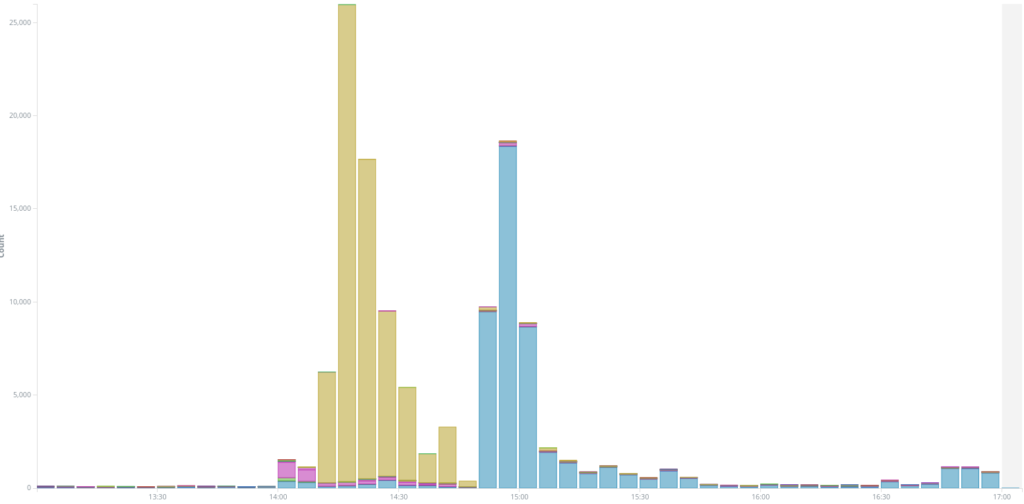
Peak of traffic by user-Agent type, first peak colour is for WordPress user-agents, second peak color is for Chrome user-agents
The second peak of traffic was actually coming from a very different source: we identified 252 different IP addresses as the origin of this traffic, mostly coming from home Internet access routers, located in different countries. We think this second peak of traffic was from a small botnet of compromised end-systems. These systems were mostly located in Russia (32), Egypt (20), India (17), Turkey (14) and Thailand (10) as shown in the following map :
Conclusion
The first DDoS attack had a significant impact on the Caucasian Knot website, leading to their joining the Deflect service. It took us a few days to mitigate this attack, using specific filtering rules and javascript challenges to ban hosts. The second and third attacks were largely smaller and were automatically mitigated by Deflect.
In our follow up investigations we could not find a direct technical link to explain attackers’ motivation, however in all cases attacks were launched within a 24-hour window of a publication critical of the Chechen government and when countering its official narratives. We did not find any similar correlation with other thematic or region specific publications on this website, within a 24-hour window between publication and attack.

